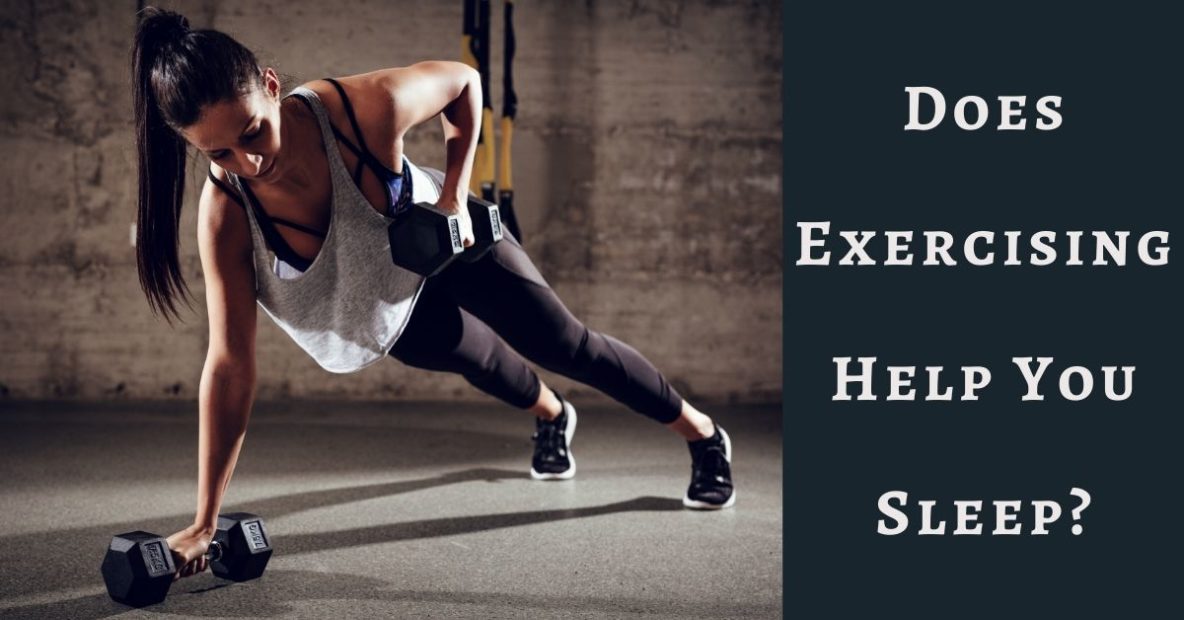Does Exercising Help You Sleep?

- A Promising Paradigm Shift: New Research Challenges the CPAP-First Approach to OSA Treatment - September 5, 2023
- Understanding Sleep Meditation Techniques - July 30, 2021
- How Online Learning Has Affected Sleep for Students - July 13, 2021
Have you tried everything to help you get a good night’s sleep? From avoiding caffeine in the evening to doing some relaxation exercises before bed or installing room darkening blinds, you’ve worked hard at getting enough rest. If you struggle to fall asleep at night, and stay asleep throughout the night, you might want to consider beefing up your workout routine. Committing to regular exercise could be the key to getting a good night’s sleep.
Does Exercising Help You Sleep?
Getting a good work out is great for both your both and your mind, and it can help you sleep better at night. Studies have shown that exercising can make you fall asleep faster as well as sleep more soundly through the night. When you do moderate aerobic exercise during the day, and increase your heart rate for a few minutes, your sleep patterns will change. Exercise has been linked to more slow wave sleep patterns throughout the night. This deep state of sleep is when your body is able to rest, and getting enough slow wave sleep will give your more energy in the morning, and boost your immune system.
Along with the other benefits of exercise, a regular fitness routine can help you calm your mind, decompress after a busy day at the office, let go of stress, and balance your mood. Just like mindfulness exercises, soaking in a hot bath, or other relaxation techniques, exercise can help you feel calmer in the evening, relax more fully before bed, and enjoy a deeper sleep.
How Much Should You Exercise?
We all lead busy lives, and unless you’re an athlete, you don’t have time to spend hours at the gym every day. So, what’s the right amount of exercise for optimal sleep? Even 30 minutes of exercise a few times per week will have a positive effect on sleep, and you don’t need to wait for weeks to see the results. Doing moderate aerobic exercise for 30 minutes can have an impact on your sleep the very same night, and you’ll easily drift off to sleep. When it comes to exercise, be realistic about how much you can exercise, and aim to increase your heart rate for a few minutes at least 4 days per week.
What Kind of Exercise Should You Do?
When it comes to exercising for better sleep, the kind of exercise you do is entirely up to you! Find an exercise routine that you love and stick with it. Whether you join a HIIT class, do yoga, go for a jog in the park, or lift weights, the most important thing is that you find an activity you like doing, and that will raise your heart rate for a few minutes every day. You can even shake things up, and do a different exercise each day to keep things interesting. Just focus on increasing your heart rate, and have fun.
When to Exercise
If you’re ready to kick your exercise routine into high gear, think carefully about how you’ll fit exercise into your schedule. If you exercise in the evening, it might be harder for you to fall asleep! Some people who exercise in the evening report feeling amped up, and too energetic to fall asleep easily. This is caused by the endorphin release that often accompanies a workout, giving you a rush of energy that’s great for getting stuff done, but terrible for sleeping. Not only that, but exercise also increases your body temperature. Again, this boosts your energy but won’t let you curl up under a warm comforter and drift off to sleep.
The best time to exercise is during the day, or a minimum of two hours before bedtime so the endorphins released will have a chance to work through the body, and let the brain wind down before crawling into bed.
Find What Works for You
Exercise will help you sleep, so find time to include a short workout routine in your daily life and enjoy the benefits of better sleep. Experiment with different workouts, and the timing of the workout, and find what works best for you. Some people report that the time of day doesn’t seem to affect them, and that they still receive all the benefits exercise has on their sleep.
